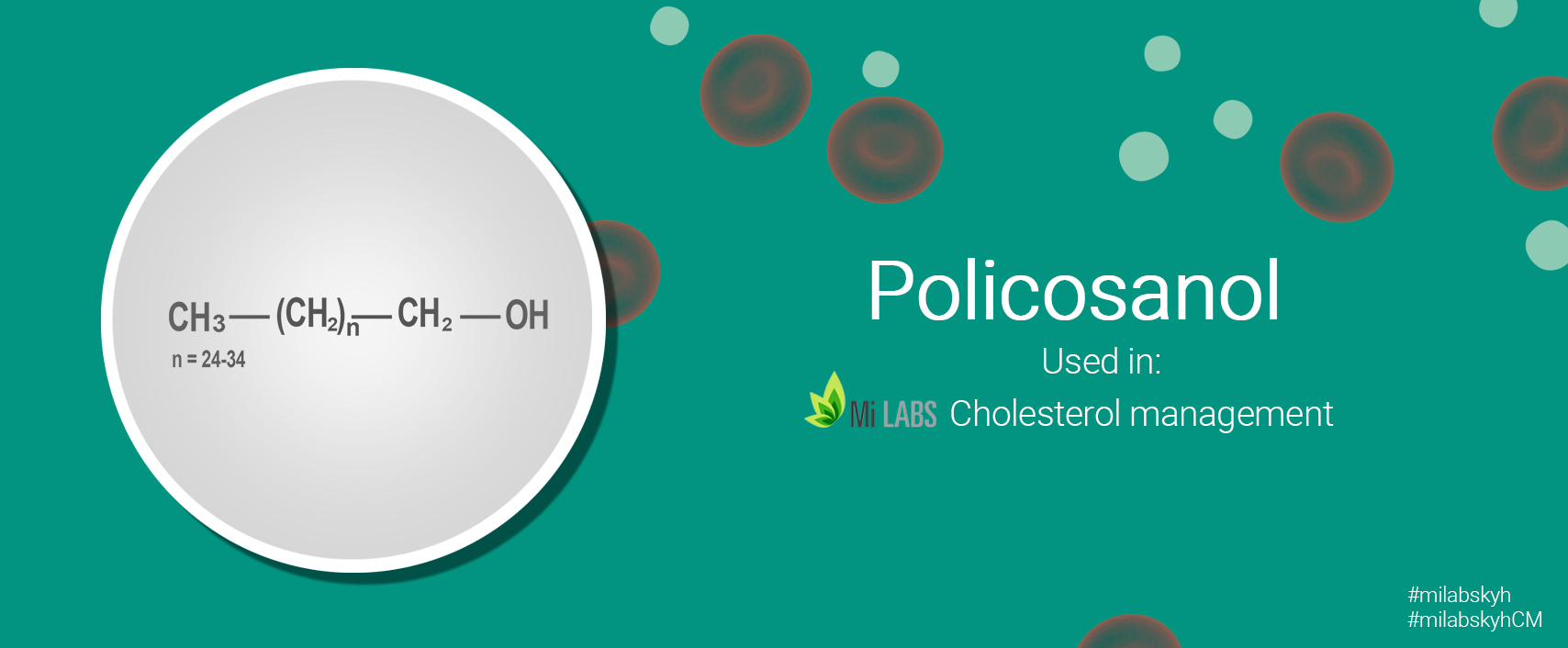

Written By Health Hub
August 10, 2017

Policosanol is a natural substance derived from sugar cane (Saccharum officinarum L) wax. It consists of a mixture of higher aliphatic primary alcohols which are bestowed with cholesterol-lowering properties. Policosanol obtained from Cuban sugar cane is sold in more than 40 countries, mainly because of its lipid lowering tendency. It is also well known for its antithrombotic, plaque stabilizing, and antioxidant actions.
The incidences of cardiovascular diseases like heart attack and stroke are increasing at an alarming rate. The current stressful life is giving a serious blow to the normal health of a person. In addition to this, the calorie rich food that we currently consume also adds to cholesterol levels. People are becoming dependent on several drugs at a very young age. Scientists are in a search for certain natural substances that can bring down our cholesterol levels and keep our heart healthy. Studies suggest that when policosanol is given as a supplement, it can normalize the cholesterol levels, without any side effects. It works at par with many of the traditionally used drugs.
Sugar cane policosanols (SCP) control the cholesterol levels through various mechanisms. They suppress the cholesterol synthesis by inhibiting the enzymes involved in the cholesterol biosynthesis pathway. SCP mainly acts at a step between acetate and mevalonate production within the cholesterol biosynthesis pathway. They obstruct the cholesterol synthesis in the liver (Kassis and Jones).
SCPs also prevent the formation of arterial lesions. This keeps the arteries healthy and prevents atherosclerosis. As a result, blood flow to the heart is maintained at normal levels and this keeps the heart healthy (Noa M, et al, 1995).
One of the most vital actions shown by policosanols is the prevention of the oxidation of low density lipids (LDL). Oxidation of LDL is very dangerous as the oxidized LDL creates a chronic inflammatory response that leads to the destruction of the blood vessels. Oxidized LDL can also trigger the activity of metalloproteinase enzymes. These enzymes interfere with the protective effects of high density lipids (HDL). This also leads to the destruction of the blood vessels (Menendez, et al.). So on the whole, policosanols prevent the destruction of the blood vessels.
The healthy arteries are marked by a smooth lining of cells. This allows the blood to flow through these vessels without any obstruction. In case of some cardiovascular diseases, this lining of cells becomes thick due to the overgrowth of the cells and obstructs the flow of blood. Animal studies suggest that policosanol reduces the proliferation of the cells that results into narrowing of the arteries (Noa, et al, 1998).
A double blind placebo controlled study was conducted to analyze the effect of 20 or 40 mg/day of policosanol on patients with type II hypercholesterolemia. After 24 weeks of such treatment, a significant reduction in the LDL-cholesterol levels was noticed. There was a marginal increase in HDL cholesterol (good cholesterol) levels (Castaño, et al, 2001).
To compare the efficacy of policosanol with the standard lipid-lowering drugs, a randomised, single-blind, parallel-group study was conducted in older patients (60-80 years) with type II hypercholesterolaemia. After 8 weeks of such treatment, policosanol led to a marginal decrease in the LDL cholesterol levels but a significant increase in HDL cholesterol levels. Further, policosanol was well tolerated by these patients (Castaño, et al, 2003).
To compare the efficacy of policosanol with the standard lipid-lowering drugs, a randomised, single-blind, parallel-group study was conducted in older patients (60-80 years) with type II hypercholesterolaemia. After 8 weeks of such treatment, policosanol led to a marginal decrease in the LDL cholesterol levels but a significant increase in HDL cholesterol levels. Further, policosanol was well tolerated by these patients (Castaño, et al, 2003).
Regular exercise and good diet are a must to keep ones heart healthy. Policosanol enhances endurance and oxygen utilization during exercise. In fact, patients have shown an improvement in treadmill exercise-ECG tests after treatment with policosanol. Due to these promising results, it is believed that Policosanol can be a very promising phytochemical alternative to classic lipid-lowering agents. So consume policosanol and keep your heart healthy.
Garlic Lowers Your Blood Cholesterol Levels.
By admin on August 10, 2017
Garlic (Allium sativum) is a
Leave a Comment
Your email address will not be published.